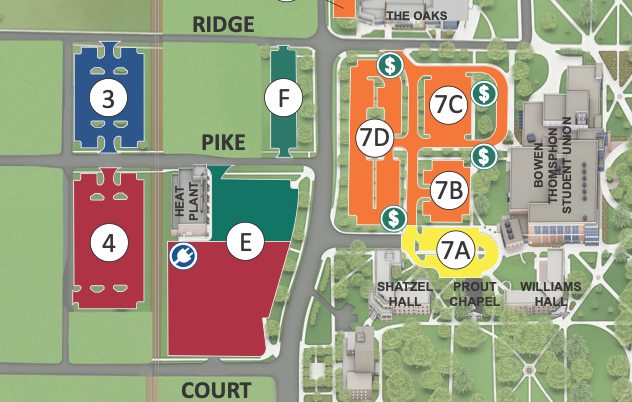While immigration and refugees have been in the national spotlight for the past few weeks and continue to be a pressing issue in Washington, Joseph Carens, professor of political science at the University of Toronto, brought discussion on migrants and refugees to the University’s campus.
Carens’ speech echoed the themes he presented in his latest book, “The Ethics of Immigration.” He said he believed borders should be open and people should be free to move and settle where they choose, unlike President Trump’s isolationist stance on immigration and refugees.
“In many ways, citizenship in Western democracies is the modern equivalent of feudal class privilege,” he said. “The inherited status greatly enhances your life chances.”
For Carens, being born in America and being granted citizenship is similar to being born into nobility, where being born into citizenship in a poor country is like being born into the peasantry. Which class, or in Carens’ case, country, a person is born into is based entirely on luck.
Regarding immigrants without current legal documentation, Carens said whether they crossed a border illegally or came to the United States legally and overstayed their visa, the longer one stays in a society, the more one becomes ingrained in the society. Many of these migrants have been in the United States since childhood and don’t know anything about their home country or language.
He said sending them back to their home countries is a mistake, especially when they are active and contributing members to an American society and economy. Irregular migrants should enjoy most of the civil social rights that citizens enjoy, but their citizenship status often prevents them from doing so.
“It makes no sense to provide people with purely formal legal rights when the conditions that make it possible for people to exercise those rights are ineffective,” Carens said.
For example, irregular migrants have the right to report a crime or access emergency health care. However, the fear of the police department or the hospital reporting their status to immigration officials and in turn, being deported is a deterrent. Because of this fear, crimes against irregular migrants are often not reported.
While Carens’ rationale for open borders is rooted in current political atmosphere, his justification for accepting refugees is historically rooted in the Holocaust. Jewish Europeans feared for their lives, and Western countries failed to accept Jewish refugees.
“If you look at the responses to Jewish refugees in the late 30s, it’s striking how many echoes we hear with contemporary concerns and attitudes,” Carens said. It was “a profound moral failure, something we should acknowledge as a shameful moment in our history and resolve never to repeat.”
Those echoes include rhetoric such as: “It’s not our fault and we’ve got our own problems;” “We have an obligation to look out for our own needy first;” “They don’t share our Christian or democratic values;” and “Refugees could pose security threats.”
He warned we are indeed repeating ourselves now with refugees from countries like Iraq and Afghanistan, countries that are producing refugees because of U.S. military influence in the region.
“We have a moral responsibility to find homes and permanent solutions for refugees that have had to flee their own homes because of our actions,” he said.
He also said environmental refugees are U.S. concern as well and should have special consideration. The economic and environmental policies in the United States are contributing to global warming which is causing thousands of people to flee their homes.













